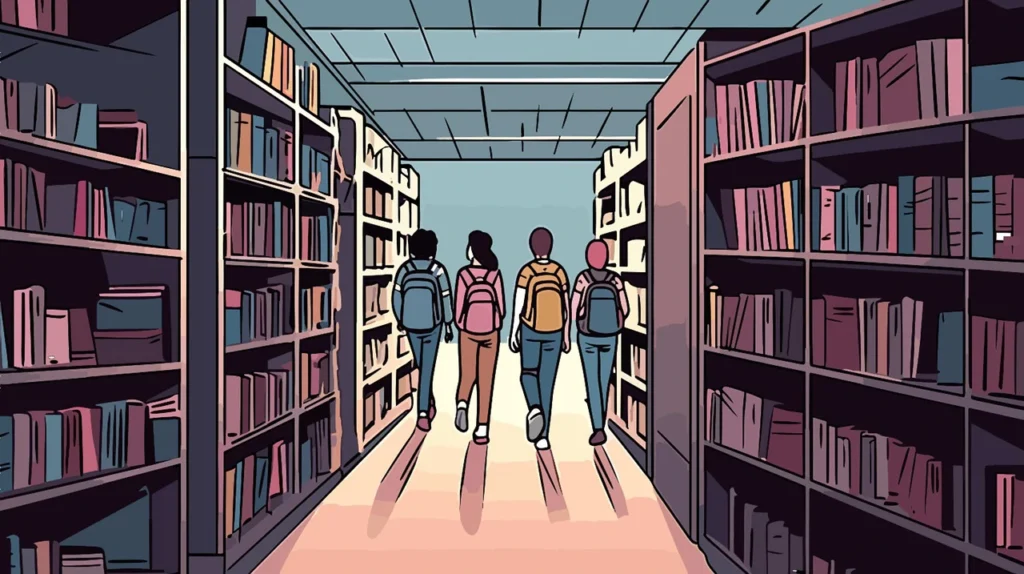
5 Major Benefits of Returning to School for Writing
Words By Alex Schotzko, Art By Chen
Nontraditional students are a fast-growing academic population in the US. I’m one of them—I just recently returned to school after a four-year break. And I’ve noticed more and more people these days seem to be getting comfortable going against the high-school-to-college fast track. But if you left college—or never went in the first place—how do you decide when (and if) to go back? Especially for something like writing?
Tough question. There are plenty of caveats, contexts, and canoodles that go into making such a big decision. So, in a noble effort to aid you, I’ll share five key benefits I’ve discovered since returning to school for writing.
- Deadlines
Okay yes, I know. I KNOW. This word disgusts me too. It’s one of the main reasons I dropped out of school in the first place. I mean, homework? Seriously? Not cute.
But honestly, I’ve come to appreciate deadlines. They’re still stressful, mind you—that part doesn’t change—but they also provide two very important things to a head-in-deep-space writer like me: structure and motivation.
Deadlines have forced me to actually do the work of writing. And it’s a lot of work! It takes a stupid amount of persistence and discipline. And as a creative who struggles with both of those things, school deadlines have been the training wheels I’ve needed to help me figure out my own methods of tackling a project. And it’s a tool I’ll carry and continue reluctantly honing for the rest of my life.
- Comradery

And what’s the point of horrible, stressful deadlines if you don’t have any friends to complain about them with?
Writing is often a very solitary act. Sometimes I love this about it. Other times it makes me full-on bonkers. Comradery is critical to a writing practice not just so we remember how to talk to other human beings (important!), but also so we remember we’re not the only ones who feel like we don’t know what we’re doing. We all have to fight through that noise, and it really helps to have more supportive and encouraging noise from our friends to balance it out.
Plus, things like passion and inspiration are multiplicative. There’s no hype like writing- workshop hype.
- Networking
This one goes hand in hand with comradery in a lot of ways. But whereas I view “comradery” as relating more to the social side of writing, “networking” is more about the business side.
One of the most difficult parts about trying to get into writing as a career is building a professional network. In this sense, I feel like the Internet has almost backfired—it’s now way too easy for publishers to get lost in a sea of faces, profiles, and short stories about a Really Cool and Unique Science Fiction Idea.
That’s where school comes in. While I by no means claim school will set you up with an impeccable career, I’ve made way more connections in the past eight months of college than I ever did in my two-plus years of going solo. It’s hard to avoid networking when you’re surrounded by professors and faculty who have spent huge portions of their lives navigating the writing world. And best of all, most of them are super keen to share what they’ve learned!
- Knowledge
This one might seem a bit obvious, but I can’t overstate its importance. Yes, with the age of the Internet (and your public library), knowledge has never been more widely accessible. And if you’re really self-motivated, both of those things can be a great way to learn a ton for free.
But there is a difference between trying to learn something on your own and being taught by someone who is very knowledgeable, skilled, and practiced. In school, you don’t just learn the stuff—you (hopefully) learn how to apply it, how to expand upon it, how to weave it into everything else you’re learning and will learn.
And, best of all, you get to discuss it with other people. That’s been an indispensable part of it for me—not just gaining knowledge, but learning how others interact with it. And how loaded with bias and assumption it can be. Knowledge is much more treacherous if left uninterrogated. And in my experience, few people are more ready to interrogate the system than writing students.
- Environment of Learning
This one combines all the previous points and rolls them together into one giant burrito. I can’t tell you how much my motivation, my fascination, and my writing practice have improved since being surrounded by people who love to learn and teach. It’s tough to find an environment that challenges and propels you in the same way out in the “real world.”
Still, it’s important to remember that none of this is guaranteed. Just because you go to college (or return to it) doesn’t mean these five ephemeral benefits will tumble fortuitously into your lap. You have to be ready to seek them out and strive for them. (Well, to be fair, the deadlines will find you. Nothing will stop them. Seriously, start running now.)
I also know college is a privilege not everyone has access to. If this is the case for you, I encourage you to find ways to learn from and connect with other writers in your community. Try looking into writers’ clubs at your local cafés and libraries. Or better yet, start your own!
But if you’ve found yourself stuck in a writing rut, if you feel like you’ve reached a plateau in your skill and ability, then college (or at least a couple of writing classes) might be a way to catalyze yourself. That, or you could hitchhike across the world. I hear that can be relatively stimulating.



